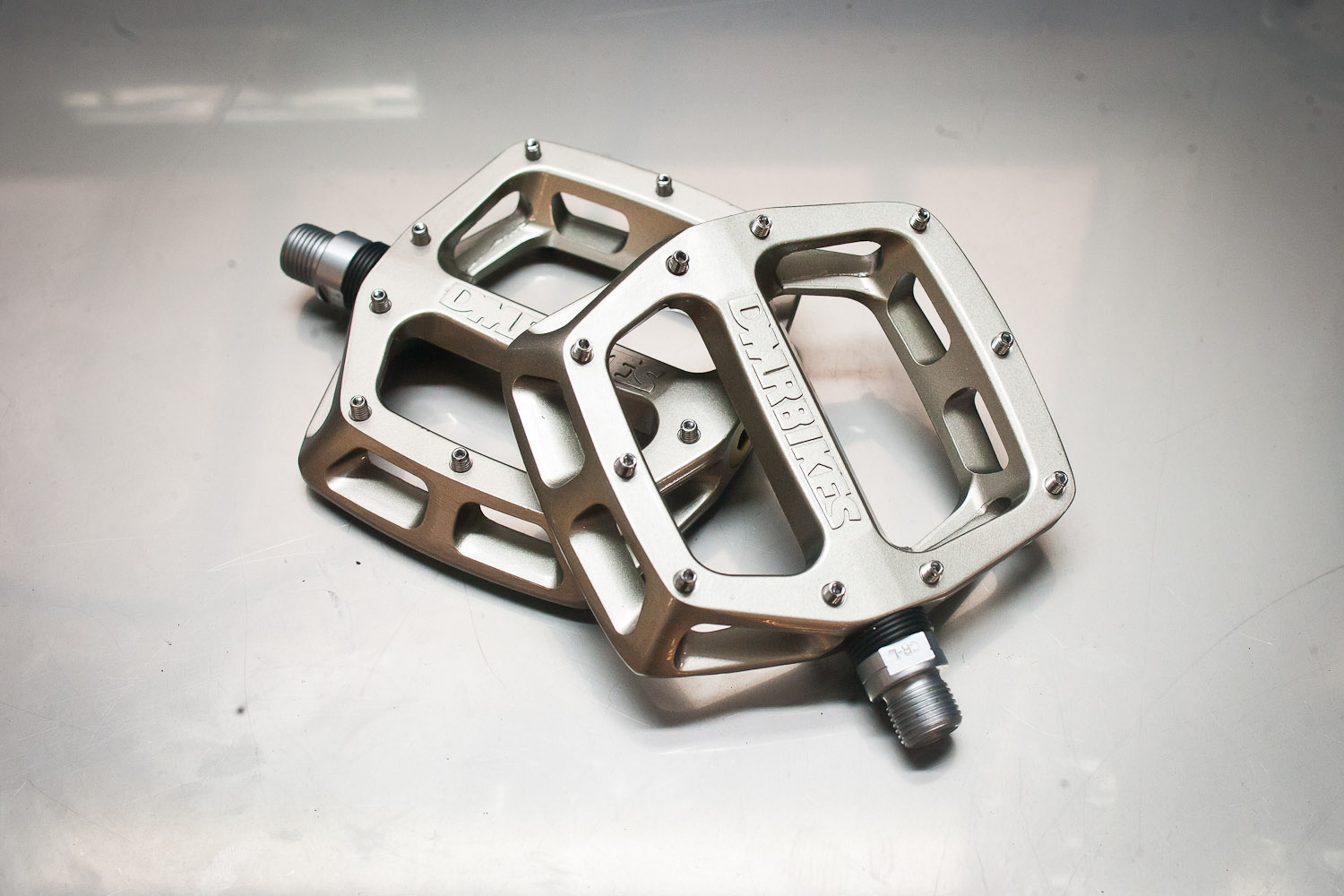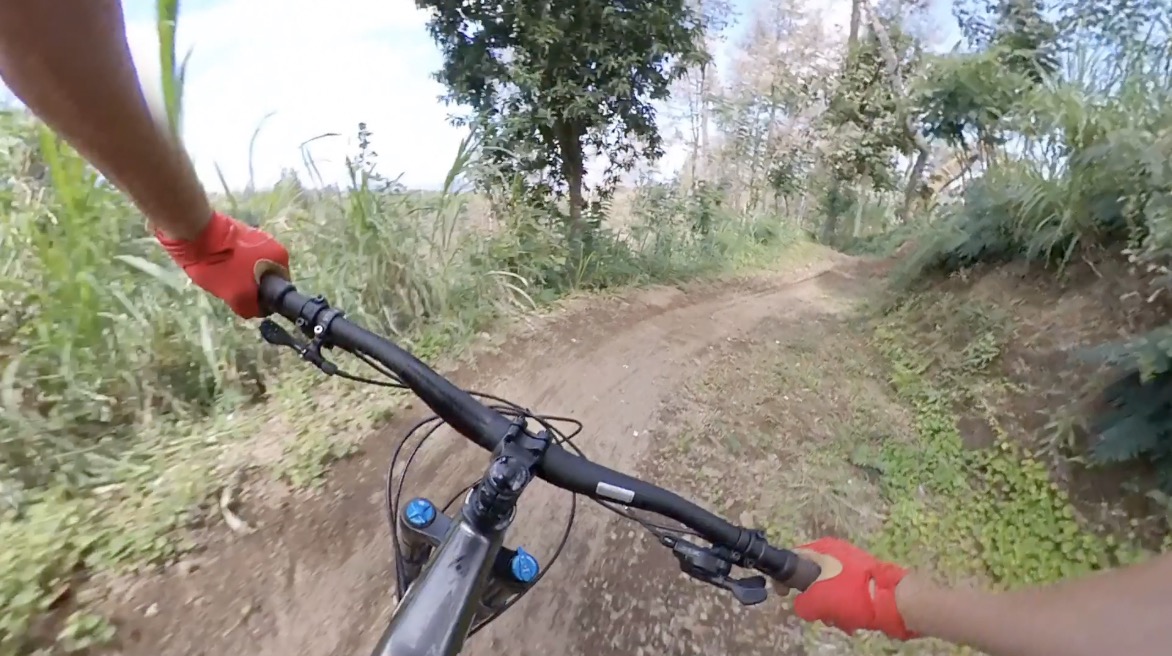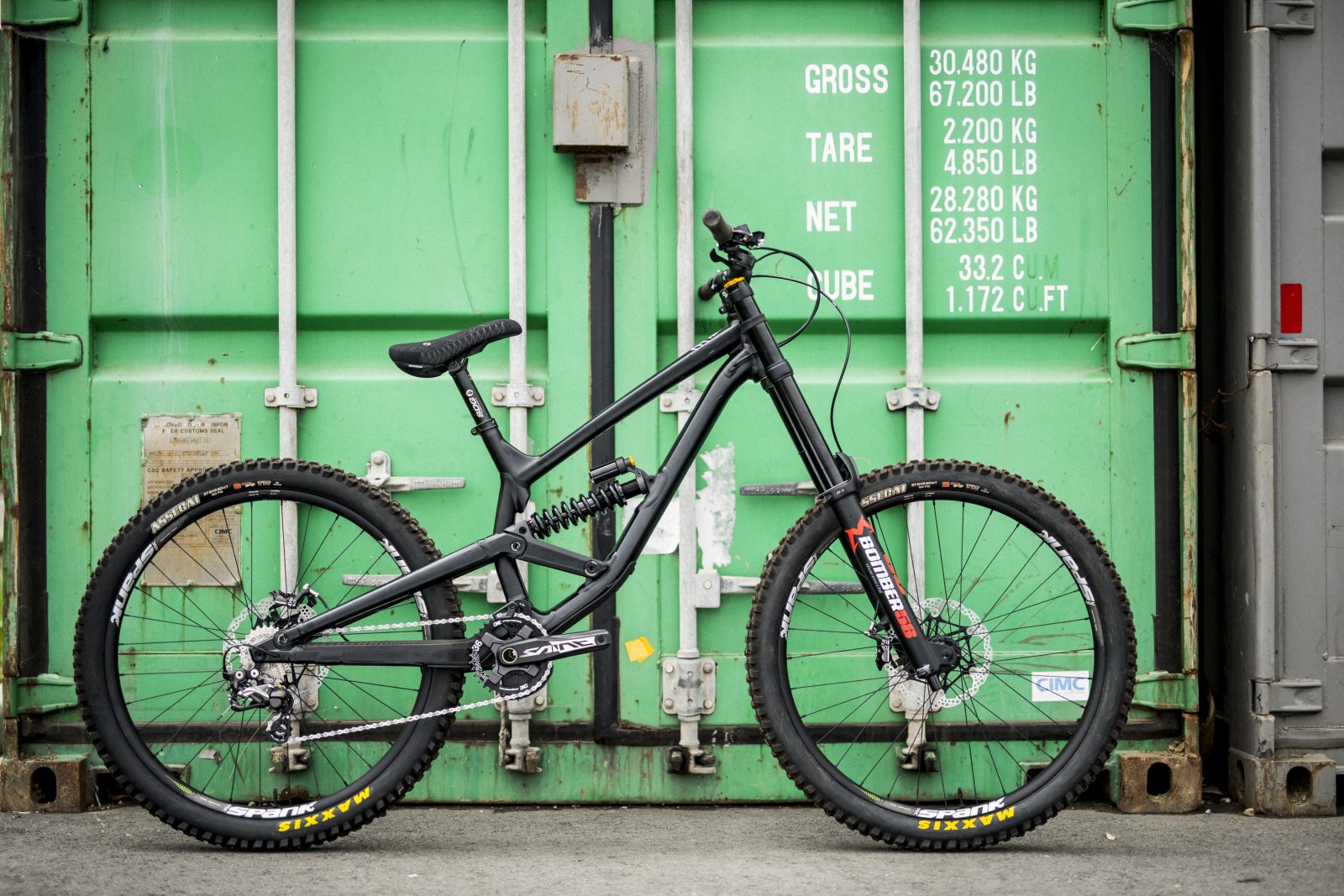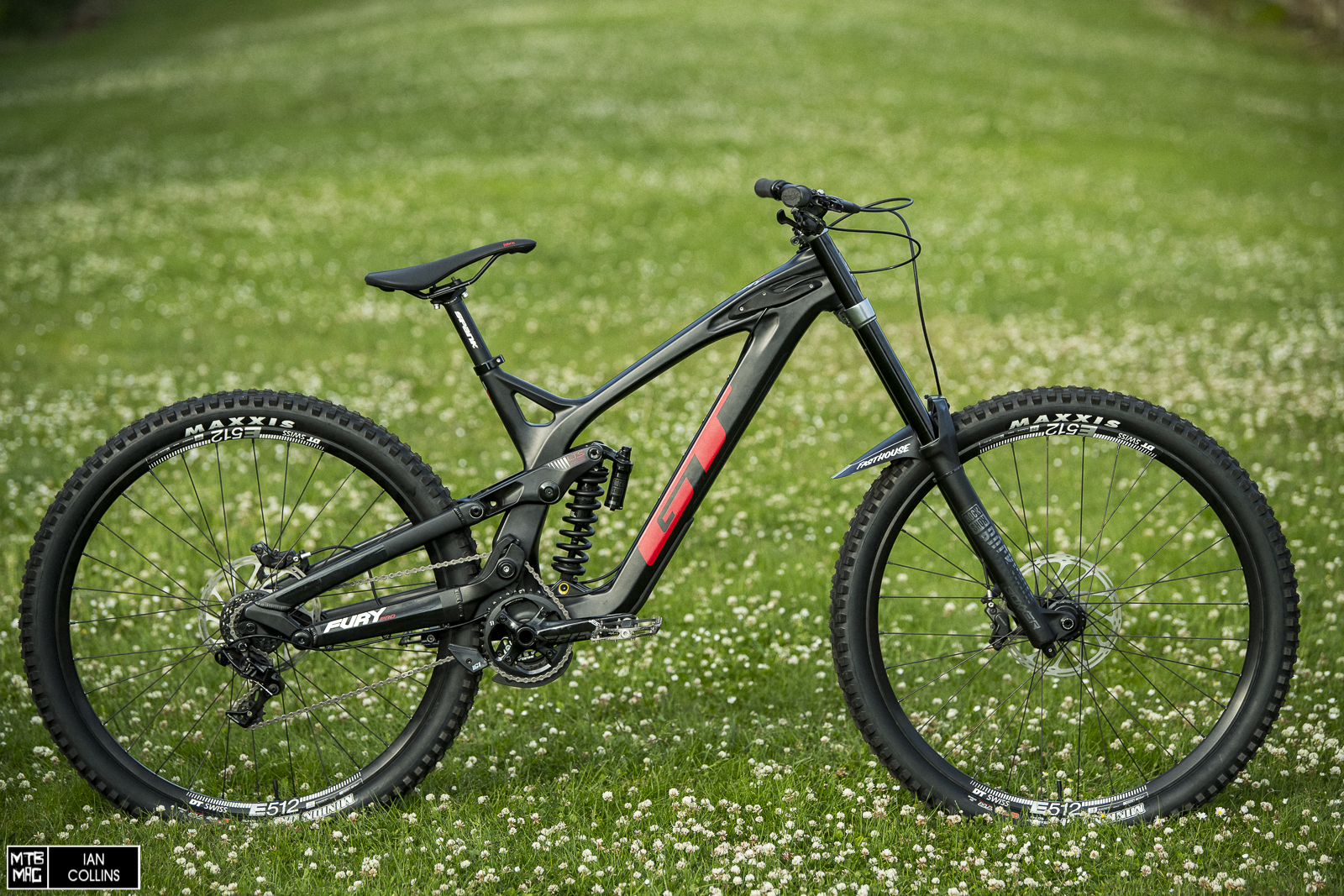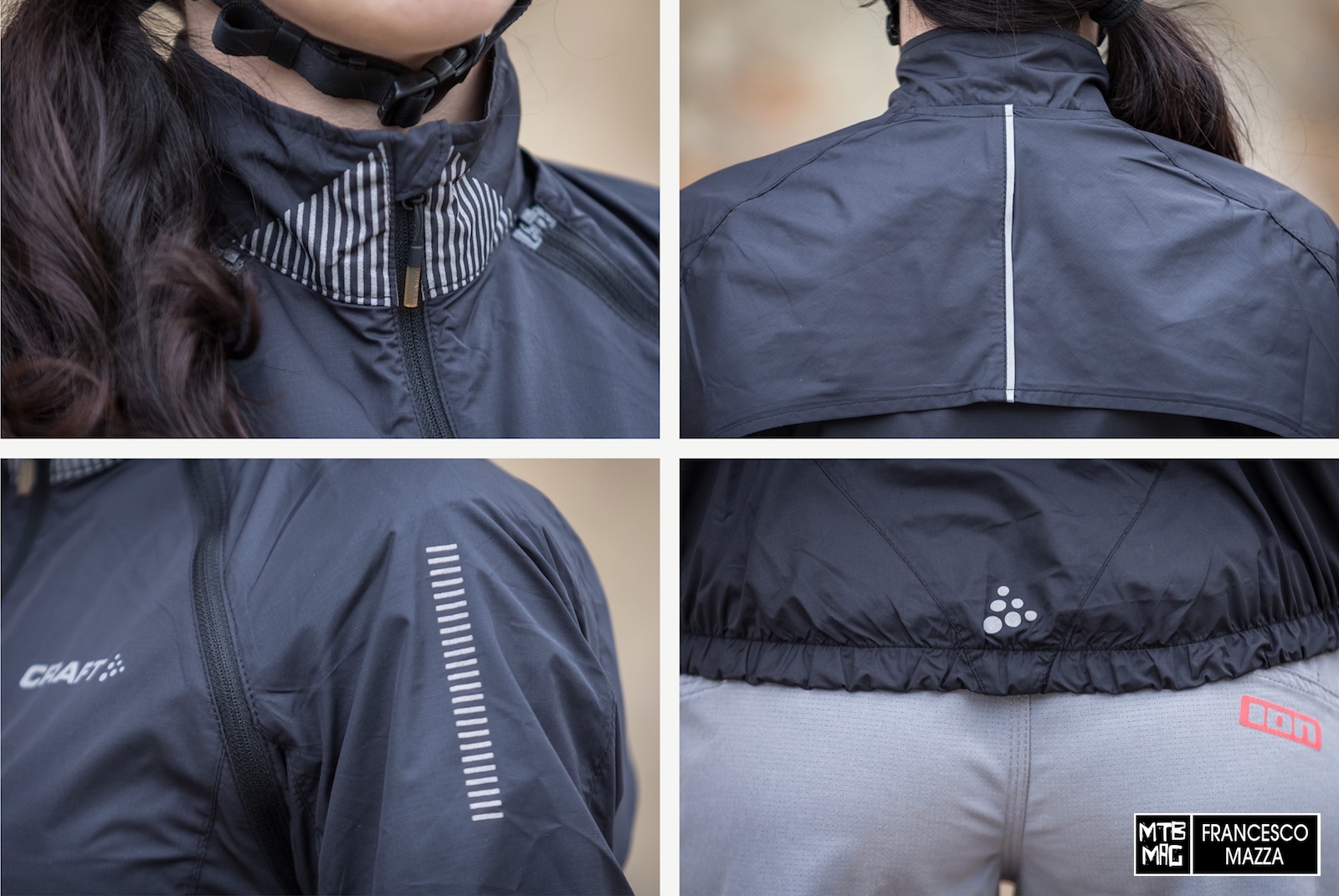DMR bikes is a fairly small British company formed way back in 1995 with an aim of creating quality components with no fuss for mountain biking. Their catalogue covers a wide range of products that focus on the gravity or dirt jump sector. They have a few key athletes in their team like Brendan Fairclough that give them solid feedback on what they are making and test their products to the limit at the same time. We tested some of their V12 flat pedals recently and came back pleasantly surprised by their high performance.
Features
The V12 has been around for a while (almost 18 years) and is a staple of pedal design that has been improved upon over the years. Their new latest design includes a larger surface area than the classic shape had and a slightly lower profile, it’s only 16mm deep. The key feeling though of the pedal is the concave feature which can be clearly seen on the main pedal body, and in combination with the other elements like the sealed bearings running on solid cro-mo axles, makes riding with these pedals a very nice experience. Weight is pretty impressive with the pair we tested coming in at close to the claimed 350 grams, around twenty percent lighter than their non magnesium version.
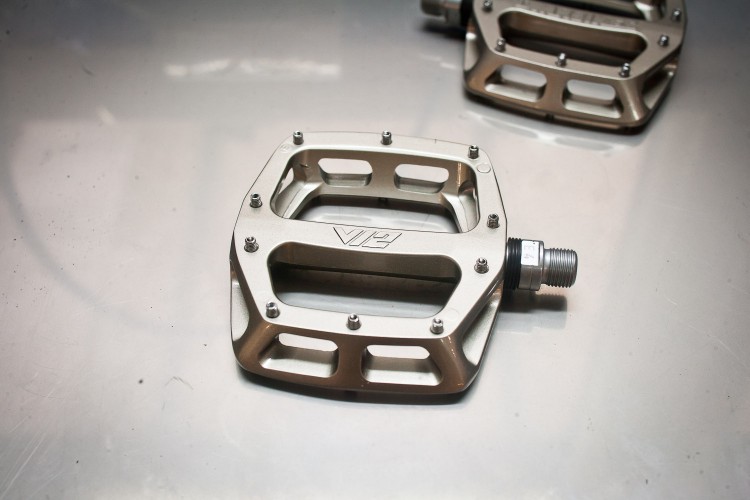
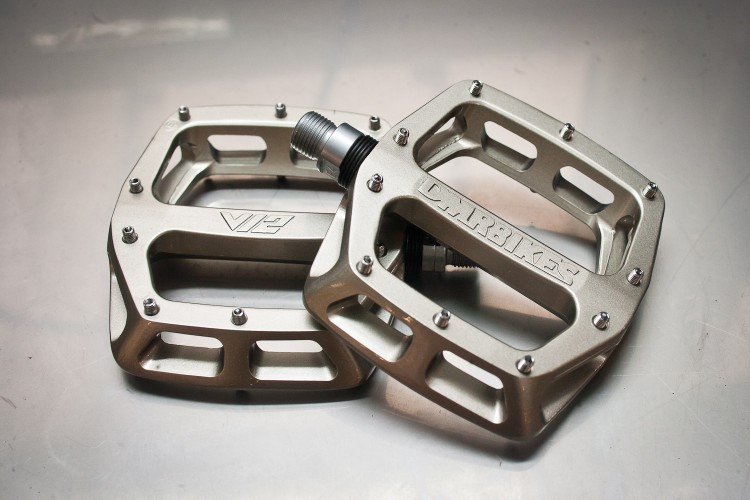
Performance
The debate rages on continuously about flat pedals verses clipless, our main aim is to approach products like this with an open mind to how they perform within their specified envelope of expectations that come along with flat pedals. That depends a lot on rider skill. As an MTB rider we have more than 15 years on flat pedals so in this sense we feel free to commentate of a product like this with confidence.
There are many strange looking designs of pedals in the market place that try to do what these have been doing for years and yet still sometimes miss, that is the concave feature. This feature in combination with the pin design really sucks the foot onto the pedal and means that any pressure around the foot on the pedal tends to be channelled always to the centre of the platform. This gives a very grippy feeling and a stable ride. There are no end of pedals on the market that fail to do this basic feature. It means when riding in rock gardens or on rough terrain or even just not placing the foot exactly where it should be, the rider always has a level of stability and contact.
When pedalling with these flat pedals it’s possible to feel how good the bearings are as the movement is very smooth and solid. Over time with experience we felt that these bearings have give a very good service with no play or grinding being detected. The bearings can be easily serviced and re-greased for optimal running performance.
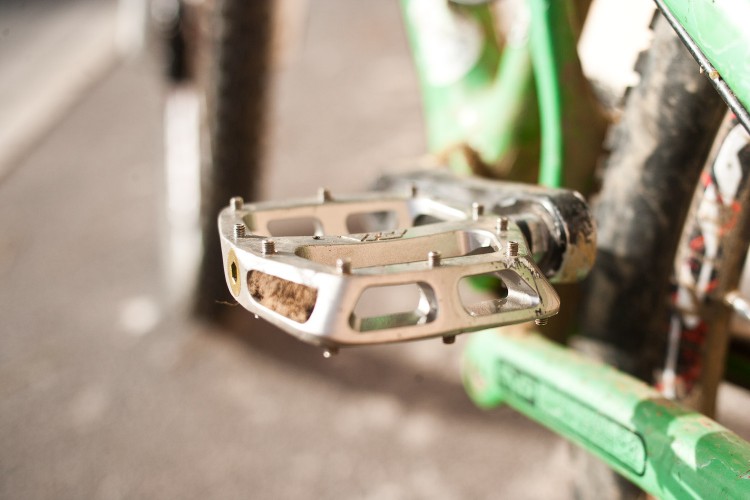
As we all know the trails are not smooth places to be and pedals tend to be the first thing on a bike that take a beating as they hit rocks and roots as we thunder down the trails, our test versions held up really well to rock strikes and thumps, with the cage being very stiff and resisting any bending or chipping. It seems the use of magnesium for weight and strength was a good choice.
The pin design is particular comfortable as well, a simple three pin appoach front and rear with some stabilising pins leads to a adjust feel depending on how grippy you want the pedal to be, which is all adjusted by a simple hex key. We tend to run our pedals in the mode where we get maximum grip, which in combination with good flat pedal riding technique gives a feeling of being clipped in that approaches clipless when used with the right shoes.
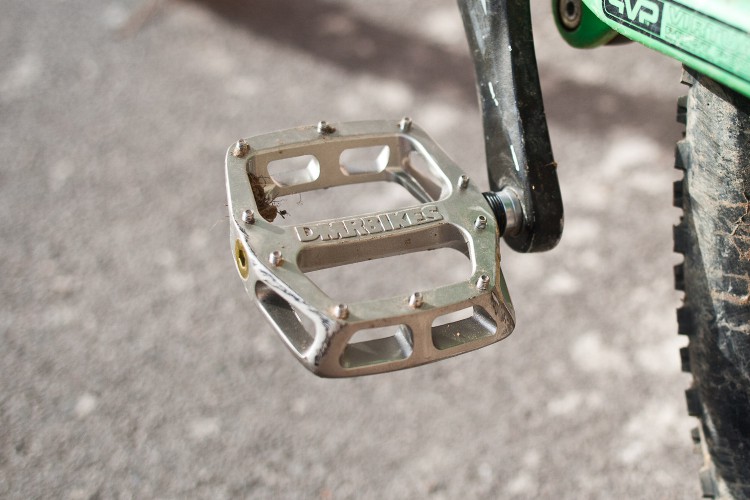
Conclusion
Flat pedals are not for everyone and for others they are the only thing to use. The v12’s design in our opinion is a base line for all other pedal makers to work from, and actually is pretty hard to beat. They are robust light and have an excellent bearing feel to them. With our time on them we have to say they felt great and gave us the grip we needed when moving around on the bike particularly in rough sections or in corners. As a premium product we wouldn’t hesitate to put our money down for a pair of these as they really are that good, despite the design being around for years. Tweaking a design that works is always best and in this sense DMR have done an excellent job.

